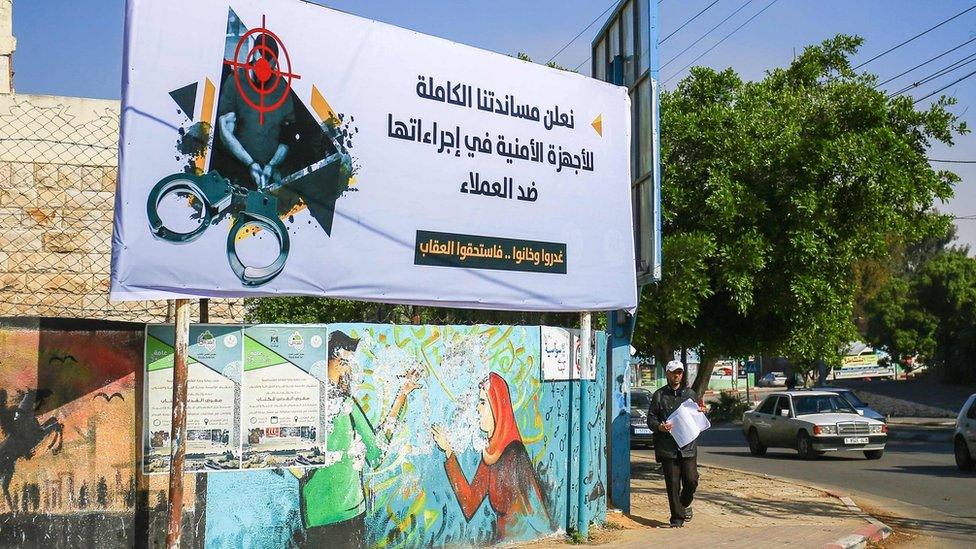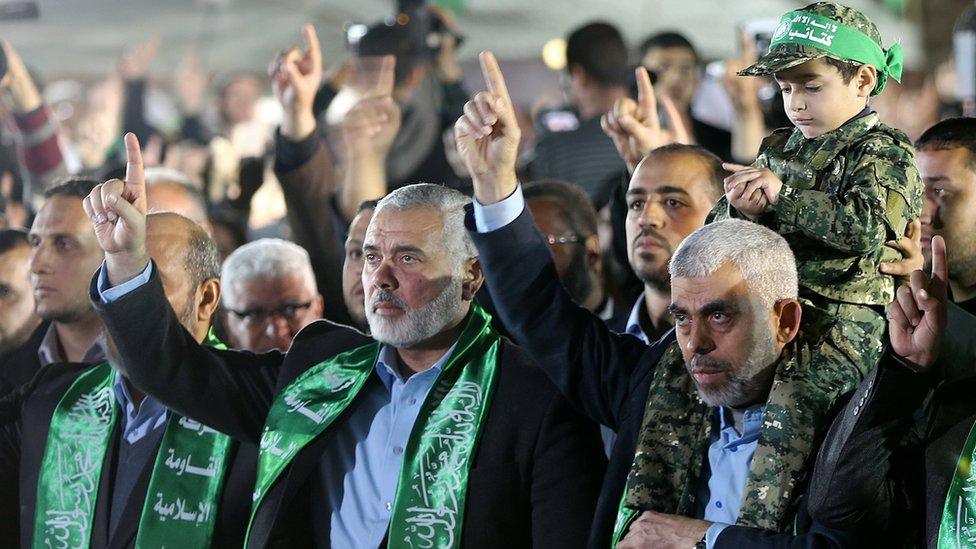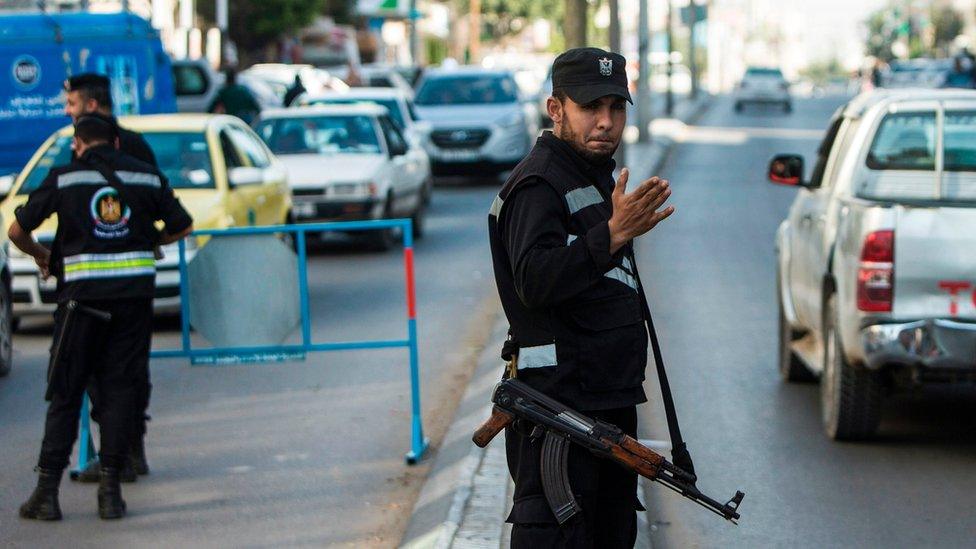Hamas executes three 'Israel collaborators' in Gaza
- Published

On Wednesday, Hamas offered collaborators a week to turn themselves in and seek clemency
Three men accused of collaborating with Israel have been executed in Gaza, the Hamas-run interior ministry says.
The Palestinians - aged 32, 42 and 55 - were hanged after being convicted by a court of treason and conspiring with foreign parties, a statement said.
They are believed to have been arrested between six months to a year ago.
The executions come as Hamas investigates last month's killing of a senior militant, Mazen Fuqaha. It has blamed Israel and local collaborators.
Human Rights Watch condemned Thursday's executions as "abhorrent" and warned Hamas that they projected "weakness, not strength".
"Hamas authorities will never achieve true security or stability through firing squads or by the gallows, but rather through respect for international norms and the rule of law," said Sarah Leah Whitson, the US-based group's Middle East director.

Hamas leaders say Israel and local collaborators killed Mazen Fuqaha
Israel occupied the Gaza Strip during the 1967 Middle East war. In 2005, it withdrew its troops and some 7,000 settlers.
In 2006, Hamas won Palestinian Legislative Council elections. It took control of Gaza the following year after a violent rift with the rival Fatah faction of Palestinian Authority President Mahmoud Abbas.
Since then, the Hamas-run authorities have carried out 22 executions, most recently in May 2016, and courts in Gaza have sentenced 106 people to death since then, according to the Palestinian Centre for Human Rights.
Hamas also killed 23 people without trials during its 2014 war with Israel.

Hamas has set up checkpoints and imposed restrictions at the main border crossing with Israel
Hamas has offered no evidence that Israel was behind Fuqaha's death.
An Israeli court sentenced him to nine life terms in 2003 for directing suicide bombings, but he was freed along with more than 1,000 other Palestinian prisoners in 2011 in exchange for the captured Israeli soldier Gilad Shalit.
On Wednesday, Hamas offered collaborators a week to turn themselves in and seek clemency, so long as they were not involved in the Fuqaha killing.
It also maintained restrictions at the territory's main crossing with Israel that were imposed after the killing, despite criticism from the United Nations and human rights groups.